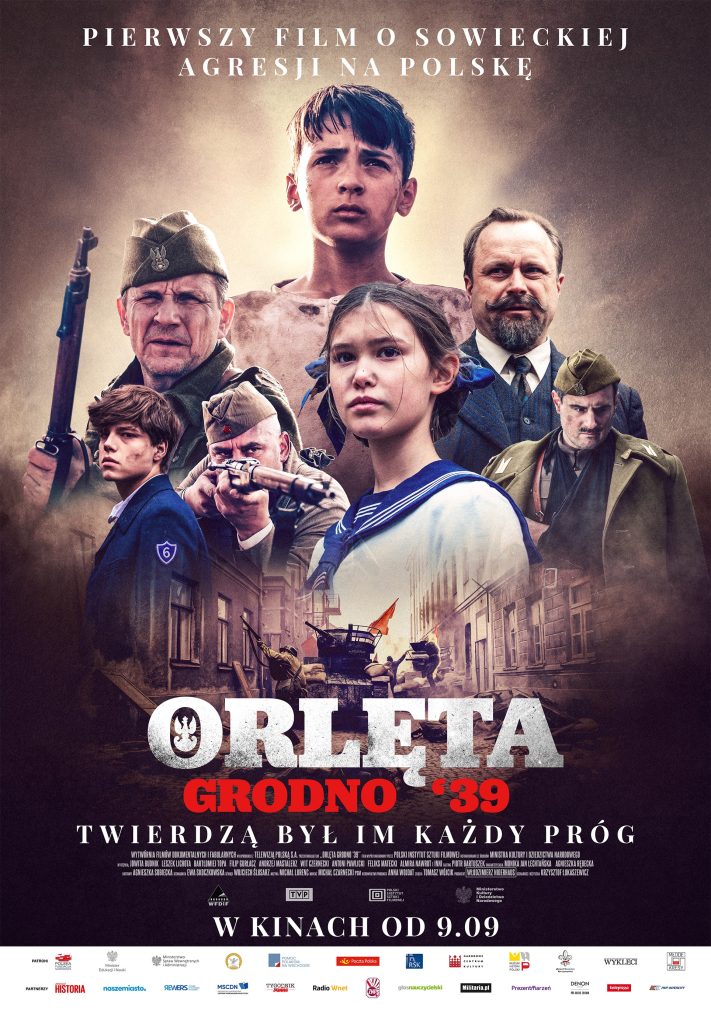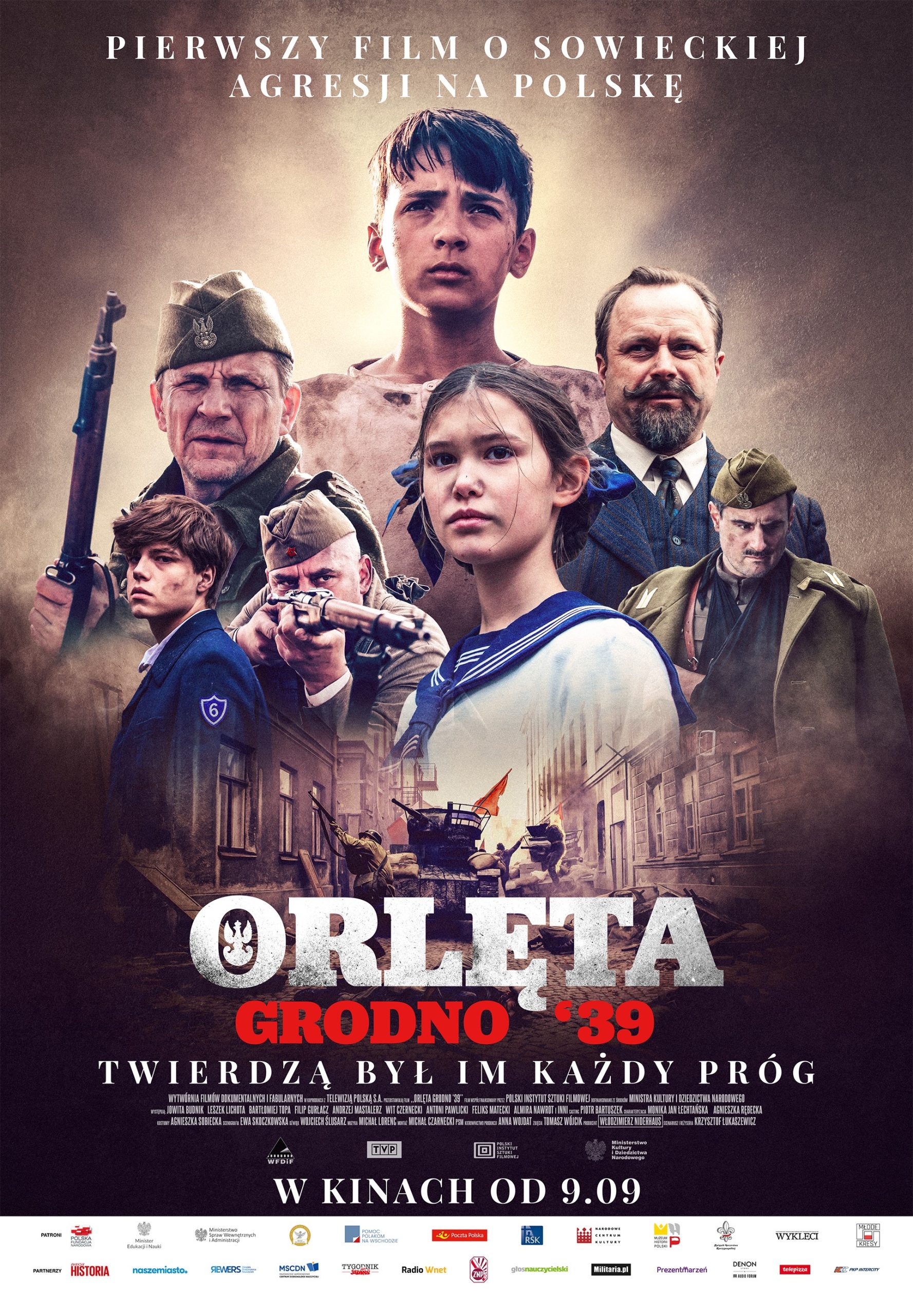Poczta Polska is the media patron of the film "Eaglets. Grodno '39"
On September 9th, the film "Eaglets: Grodno '39" will be released in theaters. Poczta Polska is the media patron of this highly educational work. This dramatic portrayal of the war with the Soviets, seen through the eyes of a twelve-year-old boy, Leon, can be an excellent inspiration for history lessons on World War II and the September Campaign, as well as arousing curiosity about those events, especially among young readers.
On the opening day of the school year, September 1, 1939, his school building is bombed by German planes. For Leoś, Tadek, Ewelina, and thousands of Polish children, the beginning of the war becomes a school of accelerated maturation, a confrontation with a dramatic history written by adults.
On September 17, 1939, pursuant to Soviet-German agreements, the Red Army entered Poland. On September 20, it planned to capture Grodno. The city's defenders began a hopeless, heroic struggle. The small military units were supported by civilians, primarily schoolchildren. It was these children and young people who heroically defended Grodno, becoming victims of the occupiers' extraordinary cruelty.
Krzysztof Łukaszewicz's film "Eaglets. Grodno '39" is the first film production about the Soviet invasion of Poland in September 1939, depicting the heroic struggle of the inhabitants of Grodno against the Russian invader.
The main character of the film "Eaglets of Grodno '39" is 12-year-old Leoś Rojst (Feliks Matecki), who spent his childhood in pre-war, multicultural Grodno.
Despite the typical tensions between the Polish and Jewish communities in the borderland region of Grodno, Leoś, who comes from a Jewish family, is passionate about Polish history, literature, and the Romantic tradition. In the planned production of "The Teutonic Knights," celebrating the end of the 1938/1939 school year, he competes with a classmate for the role of Zbyszko of Bogdaniec. The rivalry also seeks the favor of his classmate, Ewelina (Almira Nawrot), the daughter of a Polish Army officer (Antoni Pawlicki).
Leoś dreams of going to summer camp with a scout troop, but his acceptance into the Polish Scouting Association is prevented by the arrest of Leoś's older brother, Jakub (Filip Gurłacz), for communist activities.
Leoś spent the summer of 1939 in Grodno, training for middle-distance running. He intended to follow in the footsteps of Janusz Kusociński and dreamed of winning a medal for Poland at the 1944 Olympics.
On September 1, 1939, the school was bombed by German planes. For Leoś, his school friends, and thousands of Polish children, the beginning of the war would become a school of accelerated maturation, a confrontation with a dramatic history written by adults.
On September 17, 1939, the Soviets entered Poland. Grodno was put on the defensive. A small number of military units were supported by civilians, especially schoolchildren.
After an attack by Soviet tanks, Leoś takes part in the dramatic defense of the Polish barricades, the last remaining piece of Poland in the Eastern Borderlands. It unexpectedly turns out that Leoś's brother, Jakub, is leading a sabotage group supporting the Soviet assault on Grodno.

